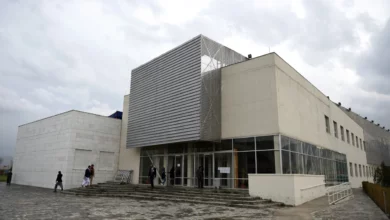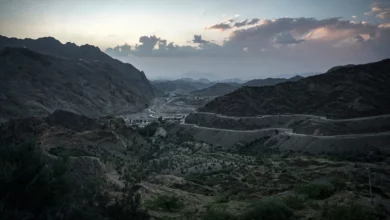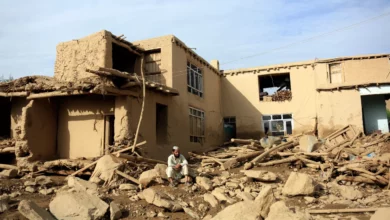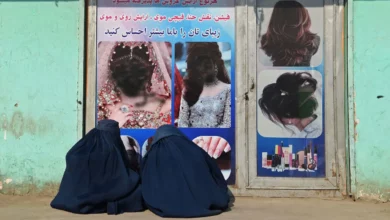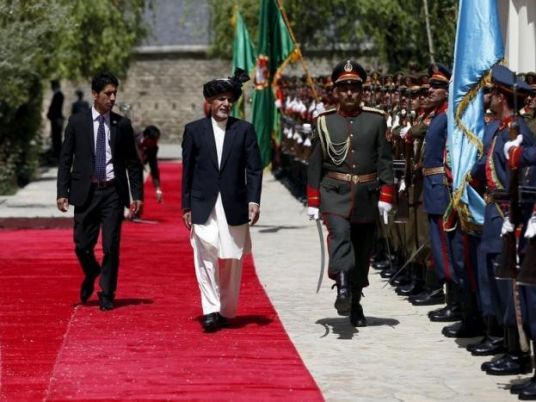
If Afghan President Ashraf Ghani was savoring inaugural peace talks with Taliban insurgents held in Pakistan on Wednesday, celebrations of the milestone he has worked so hard to reach may be short-lived.
Back in Kabul, the 66-year-old faces growing discontent from lawmakers who are making life difficult on several fronts nine months after he took office.
The lower house of parliament is threatening to impeach Ghani's interior minister over his failure to stem violence by Islamist militants. Last week lawmakers rejected the president's third nominee for defense minister.
Casualties among Afghanistan's fledgling armed forces are on the rise, they are losing pockets of territory to insurgents and there are less than 10,000 foreign troops left to support them after most NATO soldiers withdrew last year.
Little wonder the president calls his "the most difficult job in the world."
Ghani's deputy spokesman, Sayed Zafar Hashemi, downplayed the political turmoil.
"There are problems in Afghanistan, and the environment can never be ideal for a leader," he said.
The Senate upper house of parliament has been on strike since Sunday, protesting that the government has failed to respond to members' concerns.
Another problem for Ghani is the lack of cohesion in his unity government, so-called because he and rival presidential candidate Abdullah Abdullah were convinced to share power after months of wrangling over a contested election last year.
"This government is absolutely lacking national unity," said Mohammad Mohaqiq, an influential figure representing the Hazara ethnic minority.
Leaders of Afghanistan's various ethnic groups, including Abdullah's powerful Tajik faction of "mujahideen", complain that Ghani favors his own Pashtun kin when it comes to filling key posts, an issue that has dogged Afghan politics for decades.
A senior diplomat in Kabul said that he had reached "a pessimistic low" over the government's survival prospects.
Few real alternatives
For now, a growing number of critics saying Ghani should go have few legal options other than blocking his agenda.
Removing an Afghan president is constitutionally complicated and would require new elections that few would relish after last year's political crisis that threatened to spill into violence.
But in Afghanistan, where some power brokers command well-armed factions, deep discontent is worrying.
Influential northern governor Atta Mohammad Noor, who last year issued veiled threats of a breakaway government, this week issued a list of "suggested" defense ministers after parliament rejected Ghani's latest nominee, Mohammad Masoom Stanekzai.
Atta's loyalists in parliament led a campaign against Stanekzai's nomination, joined by Uzbek lawmakers who are reportedly seeking a member of their own ethnicity as defense minister, said pro-Ghani parliamentarian Qader Zazai.
"The Tajiks and former mujahideen MPs did not vote because they think all security sectors are occupied by Pashtuns and power must be shared," he said.
On Wednesday, parliament also voted down Ghani's nomination for the first woman to the Supreme Court.
Next on its hit list could be Interior Minister Noor ul Haq Ulomi, likely to be called for questioning before lawmakers, some of whom are threatening to remove him.
"We are going to summon the interior minister and will likely dismiss him," said lawmaker Allah Gul Mujahid, citing spiralling violence that included a Taliban attack on the parliamentary compound last month.
However, it was unclear whether Ghani's opponents in parliament have enough votes to remove Ulomi.
Ghani has pushed for peace talks with the Taliban to end the war, and achieved a rare breakthrough when his government met militants formally for the first time this week.
Complaints take on ethnic hue
Afghanistan's fledgling democracy set up after the US-sponsored military intervention that toppled the Taliban in 2001 has been hampered by power struggles and corruption throughout.
Ghani campaigned on promises to tackle graft and create a professional administration based on merit.
But he has struggled to balance the competing interests in Afghanistan's labyrinthine politics, described by one diplomat as a "constellation of egos".
Disagreements between Ghani and Abdullah's camps delayed cabinet nominations for months, and the two are still deadlocked over who should lead the electoral reform commission.
Increasingly, complaints against Ghani have taken on an ethnic hue, a worrying trend in a country that fought an ethnic-based civil war in the 1990s.
Hazara protesters last month accused the government of failing to come to the aid of 30 Hazara police massacred by Taliban fighters in Jalrez district, west of Kabul. Ghani ordered an investigation.
Mohaqiq, the Hazara political leader, said he pleaded for hours during the battle for reinforcements that were never sent.
"All I received were fake promises and lies," he said.

